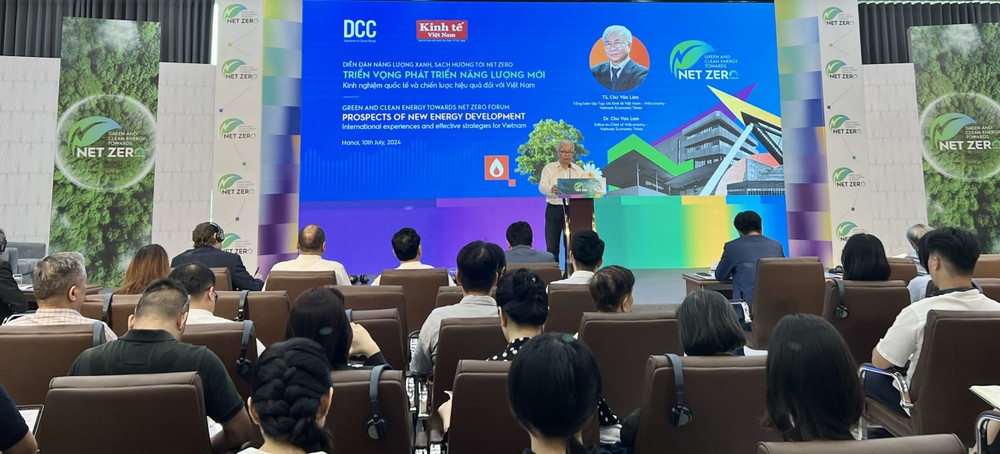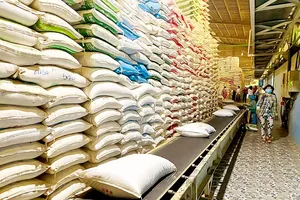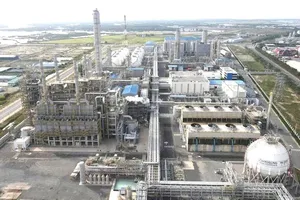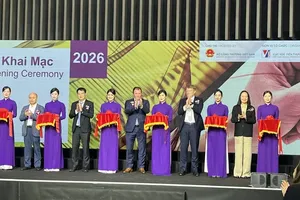
The forum is organized by the Vietnam Economic Times (VnEconomy) in collaboration with the Climate Change Department under the Ministry of Natural Resources and Environment.
Speaking at the forum, Dr. Chu Van Lam, Editor-in-Chief of the VnEconomy, noted that in recent years, the vision of a sustainable and developing future has become increasingly important in the transformation of the energy system. The goal of achieving net-zero emissions by 2050, as committed at COP26, demonstrates Vietnam's focus and determination in building a sustainable development path, aiming to create a clean and safe environment for future generations.
However, the transition to clean energy requires significant investment and appropriate technology for the production and storage of renewable energy to ensure a stable energy supply. According to the Vietnam Energy Association, the investment demand for the electricity sector from 2021 to 2030 is about US$134.7 billion (approximately $13.4 billion per year). In the past three years, only about $30 billion (around $8.5 billion per year) has been realized. Therefore, in the remaining 6.5 years, an investment of $105 billion (approximately $16.1 billion per year) is needed.
According to the Vietnam Energy Association, the investment demand for the electricity sector from now until 2030 is $105 billion (approximately $16.1 billion per year).
Meanwhile, essential legal regulations are still lacking for the direct power purchase agreement (DPPA) mechanism, offshore wind power development, and incentives for self-produced and self-consumed rooftop solar power, aiming for the goal of 50 percent of office buildings and 50 percent of households using self-produced and self-consumed rooftop solar power by 2030.
Regulations on mobilizing flexible power sources and the pricing framework for electricity trading with battery energy storage systems (BESS) and pumped-storage hydroelectricity have not been issued. Green technologies and fuels for industry and transportation, such as hydrogen fuel technology, are still in the experimental stage and not yet commercialized. Additionally, carbon capture and storage technology faces many challenges and high costs.
At the forum, experts, representatives from regulatory agencies, and businesses will discuss the opportunities and challenges Vietnam faces and propose various solutions for developing new energy sources.
The forum will also address issues such as global trends in LNG energy use and the current status in Vietnam, the implementation of policies to attract investment in the clean energy sector in Vietnam, the potential and challenges in developing renewable energy sources and proposing appropriate solutions for the development of the energy sector in the future. Foreign experts and organizations will share experiences from leading countries and provide recommendations for Vietnam's effective energy transition roadmap.
























